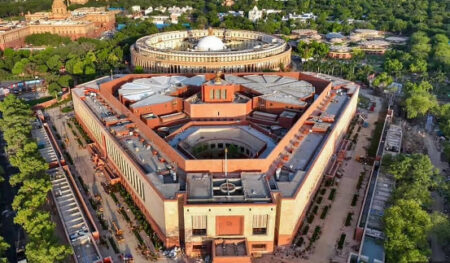People who aren’t vaccinated can’t be limited by state and territorial governments/union territories because they have different vaccination requirements. The Supreme Court said this isn’t fair.

Concerning vaccines, the Supreme Court determined that, although the Centre’s current policy is not unreasonable, no one may be compelled to get vaccinated under any circumstances, regardless of the circumstances.
The court decided that vaccination is beneficial based on the “huge substance” that was presented to the court for consideration. This is because all medical specialists feel that the vaccination is mandatory to fight against COVID-19 illness and that vaccination is quite useful by getting immune system boosted, and the World Health Organization agrees.
This court thinks that the Union of India’s current vaccination policy isn’t unreasonable or irrational in any way. This means that the court doesn’t think the policy is irrational or unreasonable in any way.
Whatever some scientists say about natural immunity and COVID-19, the supreme court has ruled that it makes no difference. The vaccine strategy for children and teenagers can be used, but only if the results of the clinical research on which it was based are made public as soon as the study is done. This is what the bench decided.
There was more information that it could not be based on. It could not be concluded that the limited emergency use clearance for Covishield and Covaxin was given in a hurry because of this information.
The court said that “no public/individual/citizen can be forced to get vaccinated.” It added that “the government can manage public health by setting some limits” to keep civil society healthy.
The individuals stated in their letter that “concerning an individual’s physical safety and self-determination, we are of the view that Article 21 of the Constitution protects physical impurity and that no one should be forced to be vaccinated to deal with the COVID-19 epidemic.”
One of the most well-known provisions of Article 21 is the protection of individuals’ freedom to reject any medical treatment in the domain of their health, which is another provision that many people are unaware of.
However, in the interest of protecting community health, the government is permitted to regulate issues of public health concern by imposing certain restrictions on individual rights, which are subject to review by constitutional courts to determine whether such an invasion of an individual’s right to personal freedom and right to access means of livelihood satisfies the three-fold necessity laid down by KS Puttaswamy; namely, in the order, it was stated that “legality implies the presence of law; necessity defined in terms of a valid state goal; and proportionality, which provides a reasonable link between the aims and measures employed to attain them.”
When the petitioner’s statistics were challenged, the Supreme Court ruled that there was no evidence from the Union of India or any of its states that the petitioner’s statistics were incorrect. The petitioner’s statistical data stated that the danger of virus transmission from unvaccinated people is practically on par with the danger of virus transmission from vaccinated people. Furthermore, the court ruled that by mandating vaccinations, state and federal governments cannot impose “restrictions on vaccinated persons.”
It also asked that authorities from around the country who had given identical directions be urged to remove them, which was granted.
When Jacob Puliyel, a physician who has been advising the center on vaccines as a member of the National Technical Advisory Group on Vaccination, arrived in court, he seemed to argue his case.
The Supreme Court’s significant decision comes at a time when the nation is seeing a rise in the number of COVID-19-related cases. The Union Health Ministry reported a one-day increase of 3157 illnesses and 26 deaths in India on Monday, based on statistics from the ministry
After more than two months, the percentage of positivity exceeded one percent once again.
Published by: Gargi Sharma
Edited by: Aaradhana Singh













